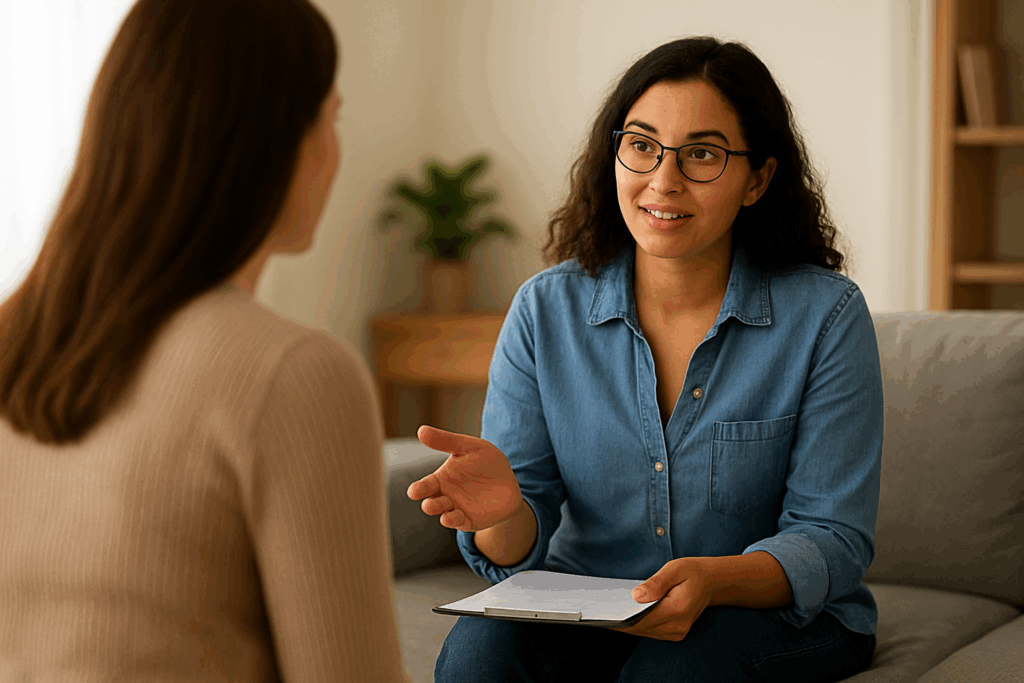From a therapist who understands—and walks with you.
You are not alone.
Mental health struggles are more common than you might think—but in our communities, they’re often hidden behind closed doors.
Today, I want to speak to you not just as a mental health professional, but as someone who understands the cultural layers, the unspoken rules, and the deep love we carry for our families and traditions.
Understanding Our Culture—and Its Silence

We come from a culture rich in familismo, faith, and resilience. Our roots are strong, and our sense of community is powerful. But sometimes, those same values can make it hard to talk openly about emotional pain.
We’ve heard it all our lives:
- “Los hombres no lloran.” (Men don’t cry.)
- “Échale ganas.” (Push through it.)
- “No necesitas terapia, eso es para locos.” (You don’t need therapy, that’s for crazy people.)
These messages, even when said with love, can leave us feeling isolated, ashamed, or afraid to reach out.
The Reality: Mental Health in Our Community
Let’s be honest about what’s happening:
- Language barriers matter – Nearly 40% of Latino adults in the U.S. say they have trouble finding a therapist who speaks Spanish or understands our cultural background.
- Access is unequal – Only about 36% of Latinos with mental health conditions receive treatment, compared to 46% of white adults.
- Stigma is still strong – Many of us are afraid to be labeled as “locos” or worry what our families will say if we seek help.
As a therapist, I see firsthand how brave it is to take that first step—and how healing it can be when you do.
The Hidden Stress We Carry
Many of us are also navigating life with layers of stress that don’t show up on the surface:
- Immigration stress and fear of deportation
- Pressure to succeed in a culture that doesn’t always see us
- Racism and microaggressions
- Trying to be the “strong one” for everyone else
Whether you’re an immigrant, first-generation, or born and raised here, this tug-of-war between cultures can be emotionally exhausting.
Healing Is Possible—And Culture Can Help
Let me be clear: There is no shame in needing help.
Healing doesn’t mean leaving behind your culture—it means bringing it into the process.
Here’s what I see helping our community:
- Family involvement – When families are open to learning, they become powerful allies in healing.
- Spirituality and faith – These are sources of comfort and strength that can walk alongside therapy.
- Community health workers and bilingual providers – Promotoras, churches, and culturally aware therapists bridge the gap between traditional values and modern mental health care.
A Personal Message to You
I know how hard it is to break cycles that have been passed down for generations.
But I also know this: healing begins when we choose to speak up, to reach out, and to believe that our well-being matters.
Mental health is not weakness. It is strength.
It is love.
It is legacy.
Let’s rewrite the narrative. Let’s teach our children that it’s okay to feel, to ask for help, and to take care of themselves—mind, body, and soul.
If you or someone you love is struggling, please know my door—and my heart—is open.
Together, we can heal.
Con cariño,
Your neighborhood therapist
🧠💛
This article was written by Daisy Hollick
